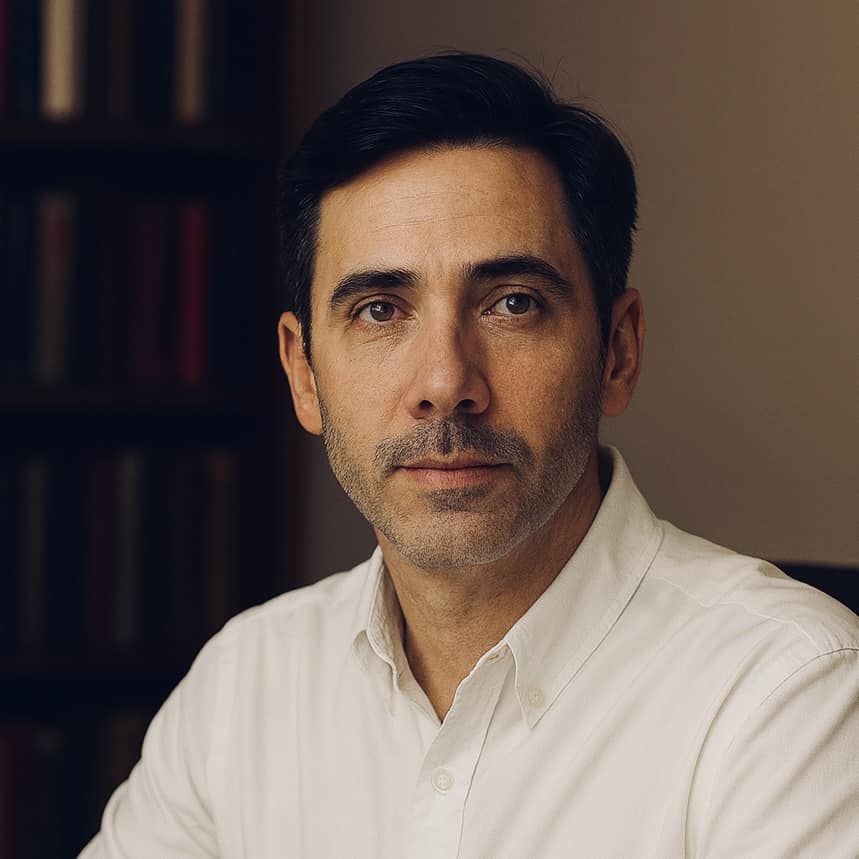We like to believe that relationships live on love, loyalty, or the magic of “just clicking.” The truth is sturdier and more useful than that. Every relationship, romantic, professional, familial, or neighborly, survives on value that moves between people. Where value stops circulating, the relationship becomes a memory that two phones still keep, but two hearts do not.
Related reading, Why does life run on relationships?
Value exchange is not a cold calculation of dollars and favors. It is the honest recognition that human beings are finite. We have limited time, limited energy, limited attention, limited patience, and limited space in our lives for what matters. We therefore gravitate toward connections where something meaningful is created and shared. Sometimes it is knowledge, sometimes safety, sometimes laughter after a heavy day. Sometimes it is the quiet sense that “with you, I become a better version of myself.” That, too, is value.
Cloverlogy speaks plainly: relationships are ecosystems. In any ecosystem, life continues only as long as nutrients flow. The flower feeds the bee, the bee carries the pollen, the field becomes a meadow. If one side only extracts, the meadow thins. If both sides only hoard, the meadow freezes. When we see people in this ecological light, value exchange stops sounding transactional and starts sounding true.
What we mean by “value”
The word “value” is often hijacked by money, but money is only one language among many. There is practical value, like helping someone move apartments in the rain. There is informational value, like analyzing a contract or offering a map of a city you know well. There is emotional value, like making a hard day feel bearable. There is identity value, like belonging to a tribe that reminds you who you are. There is temporal value, the most underestimated of all, where someone gives you a piece of their life they will never get back, and you feel the weight of that gift without keeping score.
These values can be visible or invisible. A mentor may open one door and think little of it, while the mentee builds an entire life on the other side. A parent pays a bill, but what the child receives is not a payment, it is a perimeter of safety where curiosity can grow. A friend tells a hard truth that stings for a week and saves you for a decade. None of this shows up on an invoice, but all of it is exchange.
The hidden ledger that keeps us honest
People do not carry clipboards tallying inputs and outputs. Yet our nervous systems keep a silent ledger. We feel it when we leave an interaction lighter or heavier, clearer or more confused, nourished or drained. That felt sense is our baseline accounting. Over time it teaches us which connections are regenerative and which are extractive. We do not need to moralize here; extraction is not always evil. Sometimes life is lopsided for a season, and one person carries the other. But even then, the relationship remains alive only if there is a horizon of reciprocity, if not now, then later; if not in kind, then in essence.
The myth that “real love expects nothing” sounds noble, but in practice it often hides a different sentence: “I will pretend I expect nothing while secretly hoping you will notice.” That is not freedom; it is a slow negotiation of resentment. A truer sentence is kinder to both sides: “real love gives without demanding, and also acknowledges needs without shame.” Naming needs is not a transaction; it is a boundary that protects dignity and makes the exchange sustainable.

Why you cannot opt out
Some people, bruised by disappointment, decide to exit the marketplace of human needs altogether. “I will want nothing. I will ask for nothing. I will be an island.” The island fantasy carries a quiet wish: if I need nothing, no one can hurt me. But even the island receives rain, wind, and light. The human body itself is social; our stress systems calibrate in the presence of other nervous systems. Our language, ideas, and sense of self are borrowed and refined in conversation, in conflict, and in care. Even the artist who “works alone” is in dialogue with teachers, audiences, critics, and ghosts. Opting out of relationships does not end exchange; it only makes it unconscious and brittle.
The currencies of modern life
In our era, value flows in new currencies. Attention has become a coin. So has credibility. So has the ability to simplify complexity without lying. People are drawn to others who reduce friction: the colleague who translates strategy into first steps, the friend who turns chaos into a story you can carry, the partner who turns the future into a plan you both believe. These forms of value are not trivial; they are survival tools in a world where noise outnumbers signal.
We also trade in presence. In a thousand-notifications society, undivided attention is rare oxygen. When someone gives it to you, they are not only “being there”; they are restoring your sense that you matter. The restoration has economic consequences in the broad sense: clarity improves choices, calm improves health, and both improve the way you work, love, and persist.
Reciprocity across time, not moments
A healthy exchange is not a rigid fifty–fifty split on every occasion. Real life breathes. One month your friend calls you from the edge, and you listen at 2 a.m. Another month you are the one on the edge, and they pick up. Over years, the account balances in the only way that counts: both of you are enlarged by the connection. If we demand symmetry in every moment, we suffocate the relationship. If we accept asymmetry without horizon, we convert love into labor that has no end. The art is in rhythm, not in arithmetic.
This is why trust is the central technology of human exchange. Trust allows us to accept temporary imbalance because we believe in the long arc of fairness. Trust keeps us from turning generosity into a performance and gratitude into a debt trap. Without trust, every gift is a receipt waiting to be cashed.
Rhe workplace is a relationship, too
Companies like to talk about culture, but culture is simply the sum of exchanges people can count on. If recognition is scarce and blame is abundant, the ledger is clear. If feedback elevates rather than humiliates, people stay even when headhunters call. Pay matters, and so do the intangible returns: the sense that your effort compounds, that your voice carries, that your growth is not an accident but a promise.
Loyalty cannot be demanded; it must be earned via value that employees actually experience. The same is true in reverse. An employee who wants the rewards of ownership without the responsibilities is asking to withdraw from an account they did not help fund. When both sides honor the same reality – the exchange must work for each – we get the kind of workplace where performance and well-being reinforce each other.
Love is not exempt
Romance does not escape the logic of exchange; it refines it. The early days trade in excitement and novelty, which are real but short-lived currencies. As intimacy matures, the exchange becomes quieter and more precious: reliability, shared language, mutual protection of each other’s dignity in public and in private, the courage to say “I’m sorry” when pride is loud. The relationship thrives when both people feel that being together increases their net meaning. It falters when partnership becomes a subsidy for one person’s avoidance or ambition.
Calling this an exchange does not diminish love; it gives love a body. Bodies have needs. Needs deserve honesty. Honesty lets love breathe.
Family as a long horizon
Family is where the time dimension of exchange becomes clearest. A caregiver spends years investing in a child who cannot repay. The repayment, if we can call it that, arrives in future generations: in the kind of adult that child becomes, in the kind of society they help build. Here, reciprocity is not a ledger between two individuals but a pattern that travels through time. Still, the same truth holds: the relationship survives on value given and received, whether that value is bedtime stories or boundaries, tuition payments or the simple belief that “you are worth the trouble.”
Even in later years, when roles reverse and adult children care for aging parents, the healthiest families are those that can speak about needs without guilt and about limits without shame. The honesty does not cheapen love; it prevents martyrdom from replacing it.
The shadow side: extraction and performance
Because “value” can be imitated, some people learn to perform it. Compliments become currency to buy access. Favors become hooks to reel in obligation. Humility becomes theater. We sense the performance when the exchange is always angled toward the performer’s advantage. The remedy is not cynicism; it is discernment. In a genuine exchange, value flows toward the shared good. In a performance, value flows toward the performer’s image. The distinction is subtle but felt. One leaves you more yourself; the other leaves you curated for someone else’s agenda.
Extraction can also hide behind virtue. A leader who demands endless sacrifice “for the mission” while withholding credit is extracting. A partner who calls every boundary “selfish” is extracting. Naming extraction is not an attack; it is a way to stop a relationship from becoming a factory that burns people for warmth.

Boundaries are the terms and conditions of value
A boundary is a line where value remains value instead of turning into resentment. It says, “this is what I can give without breaking trust with myself,” and “this is what I cannot give without breaking the relationship later.” Boundaries make exchanges clean. They remove guesswork. They allow generosity to be generosity rather than self-abandonment. When two people state their terms clearly, they are not turning love into a contract; they are protecting the part of love that must be voluntary to count as love at all.
The cloverlogy lens
Cloverlogy understands relationships through four inseparable dimensions of life: health, inner self, relationships, and finance. The exchange in any connection touches all four.
Health shapes the energy you bring and the patience you can offer. A sleep-starved body bargains poorly; a grounded body bargains wisely.
Inner self shapes the clarity of your values and the quality of your presence. People feel the difference between a person who needs approval to breathe and a person who can breathe while offering approval.
Relationships, as a pillar in themselves, are both the arena and the outcome. Strong ties amplify the other pillars; weak ties tax them.
Finance is not the soul of exchange, but it is a medium that can either enable or distort it. When money is scarce, every promise feels expensive; when money is abundant but meaning is scarce, every promise feels cheap. Seeing these pillars together helps us understand why a connection can fail even when “we get along,” or succeed even when “we’re different.” The flow of value crosses all four leaves of the clover.
Language that builds rather than blinds
The words we use to describe relationships either illuminate exchange or hide it. Phrases like “ride or die,” “we’re family here,” or “unconditional loyalty” can be beautiful, but they often function as fog. Better language is simpler and braver: “we are good for each other,” “this is fair to both of us,” “that cost me more than I can afford,” “what we are building together is worth it.” These sentences are not romantic, yet they make romance possible. They are not inspirational, yet they make inspiration last beyond the weekend.
Dignity, not deals
To see relationships as value exchange is not to reduce people to deals. It is to insist on dignity. Dignity means each person’s needs matter, each person’s limits matter, and each person’s contribution is real. When dignity is present, we can say no without drama and yes without fear. The exchange becomes an expression of freedom rather than a negotiation of control.
This is where Cloverlogy locates freedom and happiness – not in fantasy, not in rigid rules, but in the mature recognition that life moves forward when value moves between us. We are not meant to hoard our gifts or to spend ourselves into emptiness. We are meant to circulate what we have in ways that expand what we are. When we do, our circles become healthier, our work becomes truer, and our love becomes a home.
A clear, liberating truth
If you remember only one line, let it be this: relationships endure to the degree that they are good for the people in them. “Good” is not selfish; it is sustainable. It means the connection increases our capacity to be honest, to be kind without being exploited, to be ambitious without making the other small, to be present without disappearing into caretaking. Where that increase is real, the exchange is working. Where it is not, the relationship is not failing because you are unworthy or they are ungrateful; it is failing because the flow that keeps every living thing alive has slowed to a trickle.
To accept this truth is not to make love conditional; it is to make love possible. It is to replace vague promises with clear patterns, to replace anxiety with alignment, to replace the fear of “keeping score” with the confidence of “keeping faith.” We stop asking whether relationships should be value exchange and begin asking what kind of value we are creating together, and what kind of humans that creation is turning us into.
Cloverlogy was built for this clarity. Where wisdom creates freedom, honesty creates room to breathe. And when we breathe, we can finally love people as they are, not as our unspoken ledgers wish they would be.












